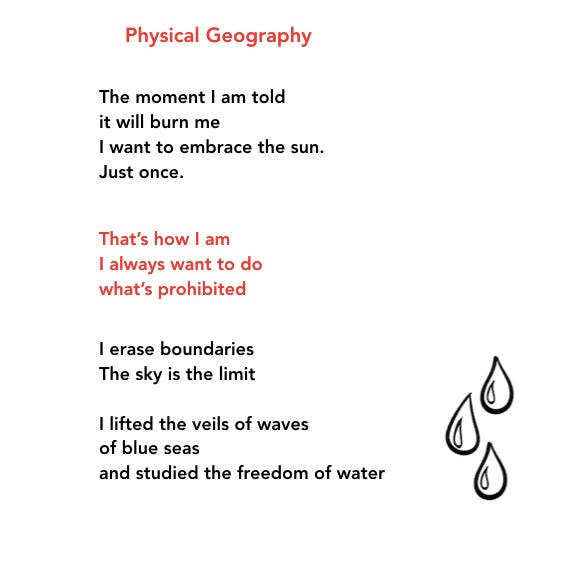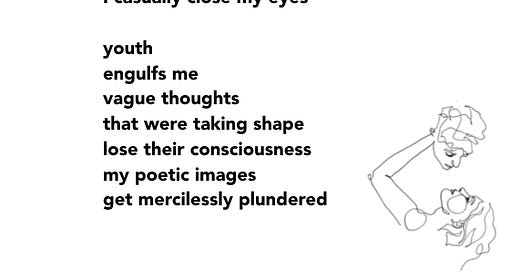“Born in [1961] Nellore, into a Telugu Muslim family, Mahe Jabeen is trained as a social scientist. She runs an institute of social service in Hyderabad. Her poetry marks a new and refreshing confluence of love and revolution, feminine desire and social protest, Hindu and Muslim experiences. Her youth and energy brought to Telugu poetry a world of sensuous hope and a revolutionary vitality at a time when routine revolutionary vocabulary desensitised it to all human feelings of tenderness and love”
*From “Twentieth Century Telugu Poetry”, ed. and trans. by V.N. Rao
“That’s how I am
I always want to do
what’s prohibited”
The essential dilemma of the artist might be a negotiation between what is desired, and what is needed. When the two meet, we call it a revolution. (apologies to Annamayya :) )
This is what caught my eye when I met Mahe Jabeen’s words.
The freedom at the core of uninhibited desire is not very different from the political impulse of resistance and protest. It is a kind of comfort with the peripheries of human experience that allows the shameless poet-lover to reimagine the tight scaffolding of language to sing with the chutzpah of sin.
“lips publish love poems”
It is a kind of sin, is it not? It is transgression, this act of documentation; to lay bare what others cannot see, to infiltrate the sangfroid of lived society with the militancy of love, and real connection. I feel, so often, that we are looking at life from behind a glass barrier, that everything we do is the vapour that forms on the surface. But there are times when that barrier dissolves and we become immortal in the fusion of the act and the witnessing. Mahe Jabeen knows this “poetry freed from words”.






